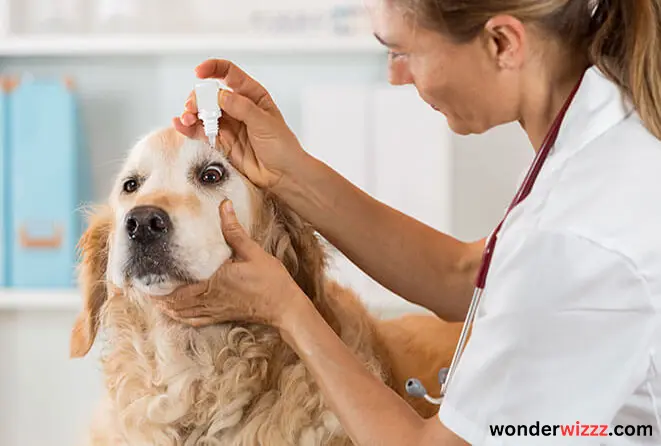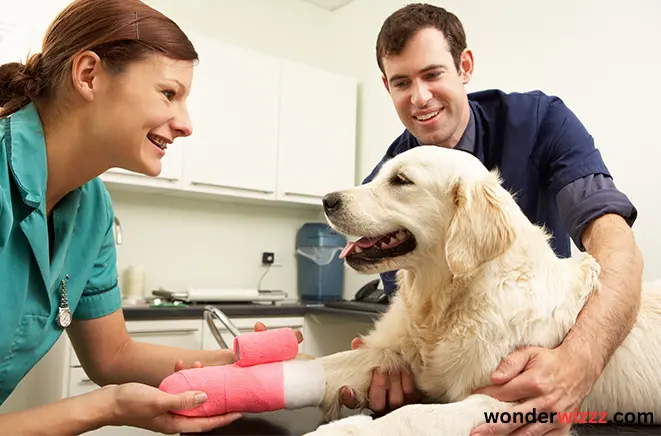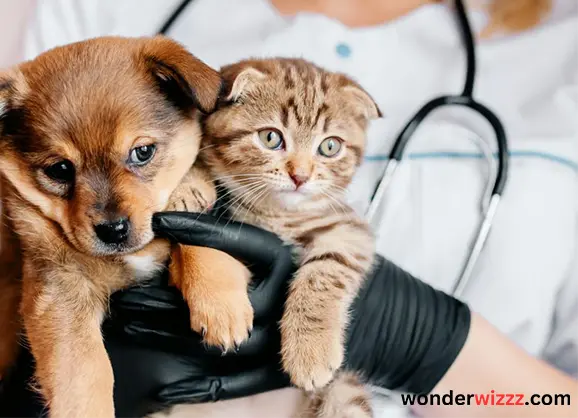How Do You Choose the Right Veterinarian for Your Pet?

Introduction
A. Importance of choosing the right veterinarian
Choosing the right veterinarian is crucial for keeping your pet healthy. A veterinarian is like a doctor for animals. They help when pets get sick and keep them well through regular check-ups. It’s important to find one who is knowledgeable, caring, and trustworthy.
B. Establishing a strong bond with your pet’s healthcare provider
Just like you have a bond with your doctor, your pet should have a strong bond with their veterinarian. This means your pet feels comfortable and safe with their healthcare provider. When there’s trust between you, your pet, and the veterinarian, it’s easier to communicate about your pet’s needs and health issues. Building this bond takes time but is worth it for your pet’s well-being.

Understanding Your Pet’s Needs
A. Different types of pets and their specific requirements
Different pets have different needs. For example, a dog needs regular walks and playtime, while a fish needs a clean tank with proper water temperature. Understanding what your pet needs is important when choosing a veterinarian.
B. Considering your pet’s age, breed, and health conditions
Your pet’s age, breed, and health conditions play a big role in their care. Puppies and kittens need different care than older pets. Some breeds have a higher likelihood of experiencing particular health problems. It’s essential to find a veterinarian who knows about these differences and can provide the right care.
C. Identifying any special needs or preferences
Some pets have special needs or preferences. For instance, a cat might be anxious during vet visits and need extra patience. Or a pet with allergies might require special dietary considerations. Knowing these details helps you find a veterinarian who can accommodate your pet’s unique requirements.

Researching Potential Veterinarians
A. Seeking recommendations from trusted sources
Start by asking people you trust, like friends, family, or other pet owners, for recommendations. They can share their experiences with veterinarians they’ve visited and help you find a good fit for your pet.
B. Utilizing online resources and reviews
Check online resources like websites and social media for information about local veterinarians. Reading reviews from other pet owners can give you insight into the quality of care provided and help you narrow down your choices.
C. Assessing qualifications, experience, and specialization
Look into each veterinarian’s qualifications, experience, and any specializations they may have. Make sure they have the necessary training and expertise to care for your specific type of pet and any unique health needs they may have.

Evaluating Veterinary Practices
A. Location and accessibility
Consider the location of the veterinary practice and how easy it is for you to get there. Choose a clinic that is close to your home or easy to reach by public transportation.
B. Facility cleanliness and organization
Take note of the cleanliness and organization of the veterinary clinic. A clean and well-organized facility is essential for maintaining a healthy environment for your pet and ensuring efficient care.
C. Availability of emergency services
Find out if the veterinary practice offers emergency services or has arrangements with nearby emergency clinics. Knowing that your pet can receive urgent care when needed can provide peace of mind.
D. Technological capabilities and equipment
Check the technological capabilities and equipment available at the veterinary clinic. Advanced technology and modern equipment can enhance the quality of care provided to your pet, especially for diagnostics and treatment.

Assessing Veterinary Care Philosophy
A. Compatibility with your own beliefs and preferences
Consider if the veterinarian’s beliefs and practices align with your own. For example, if you prefer natural remedies for your pet, you may want a veterinarian who is open to holistic or alternative medicine.
B. Approaches to preventive care, treatment, and holistic medicine
Learn about the veterinarian’s approach to preventive care and treatment. Some may focus more on preventive measures to keep pets healthy, while others may emphasize treatments for existing health issues. Additionally, inquire about their stance on holistic medicine if that’s something you’re interested in for your pet.
C. Commitment to client education and communication
Find out how committed the veterinarian is to educating pet owners and communicating openly. A good veterinarian will take the time to explain your pet’s health issues, treatment options, and preventive care measures in a way that you can understand.
Meeting with Veterinarian Candidates
A. Scheduling consultations or interviews
Arrange meetings with potential veterinarians to discuss your pet’s needs. These consultations allow you to ask questions and get a feel for how well you connect with the veterinarian.
B. Asking relevant questions about practice policies and procedures
During the consultations, ask about important details like appointment availability, emergency services, billing procedures, and how they handle communication with pet owners. This helps you understand how the veterinary practice operates.
C. Observing interactions with staff and other clients
Pay attention to how the veterinarian interacts with their staff and other clients during your visit. A positive and respectful environment is indicative of good teamwork and customer service, which can influence your overall experience.
Considering Financial Factors
A. Transparency of pricing and payment options
Make sure the veterinary clinic is clear about their prices and offers different payment options. This helps you understand how much you’ll be paying for your pet’s care and how you can manage the expenses.
B. Availability of pet insurance acceptance
Find out if the veterinarian accepts pet insurance. Pet insurance can help cover the cost of veterinary care, making it more affordable for you. Knowing if your veterinarian accepts insurance can save you money in the long run.
C. Assessing the value of services provided
Consider the value of the services provided by the veterinarian. While cost is important, it’s also essential to assess the quality of care your pet will receive. Sometimes, paying a little more for better care can save you money in the long term by preventing future health issues.
Establishing a Relationship with Your Veterinarian
A. Building trust and rapport over time
Trust and rapport are essential in your relationship with your veterinarian. As you visit the clinic regularly and interact with the veterinarian, you’ll build a bond based on mutual respect and understanding.
B. Communicating effectively about your pet’s needs and concerns
Effective communication is key to ensuring your pet gets the best care possible. Be open and honest with your veterinarian about your pet’s needs and any concerns you may have. This helps them tailor their care to meet your pet’s specific requirements.
C. Maintaining regular check-ups and follow-up appointments
Regular check-ups and follow-up appointments are crucial for maintaining your pet’s health. By sticking to a schedule of preventive care, you can catch any potential issues early and ensure your pet stays happy and healthy for years to come.
Conclusion
A. Summarizing key considerations in choosing a veterinarian
Choosing the right veterinarian involves considering factors like location, services offered, and compatibility with your pet’s needs. It’s important to find someone you trust and who provides quality care for your furry friend.
B. Emphasizing the importance of ongoing communication and collaboration
Ongoing communication and collaboration with your veterinarian are essential for your pet’s well-being. By staying in touch and working together, you can ensure your pet receives the best possible care and treatment.
C. Committing to the well-being and health of your beloved pet
Above all, choosing the right veterinarian means committing to the health and well-being of your pet. By making informed decisions and staying proactive about their care, you can help your furry companion live a long, happy, and healthy life.
People also ask
What matters most to you when picking a vet for your pet?
The most important thing is finding someone you trust and who provides quality care.
What should I look for in a veterinarian?
Look for qualifications, experience, and compatibility with your pet’s needs.
What type of person is best suited for a veterinarian?
Someone compassionate, patient, and loves animals.
How can you determine if a vet is trustworthy?
You can trust a vet if they are honest and transparent, and prioritize your pet’s well-being.
What are three important qualities for a veterinarian?
Compassion, knowledge, and good communication skills.
Why choose veterinary?
To help animals, make a difference, and build strong bonds with pets and their owners.



